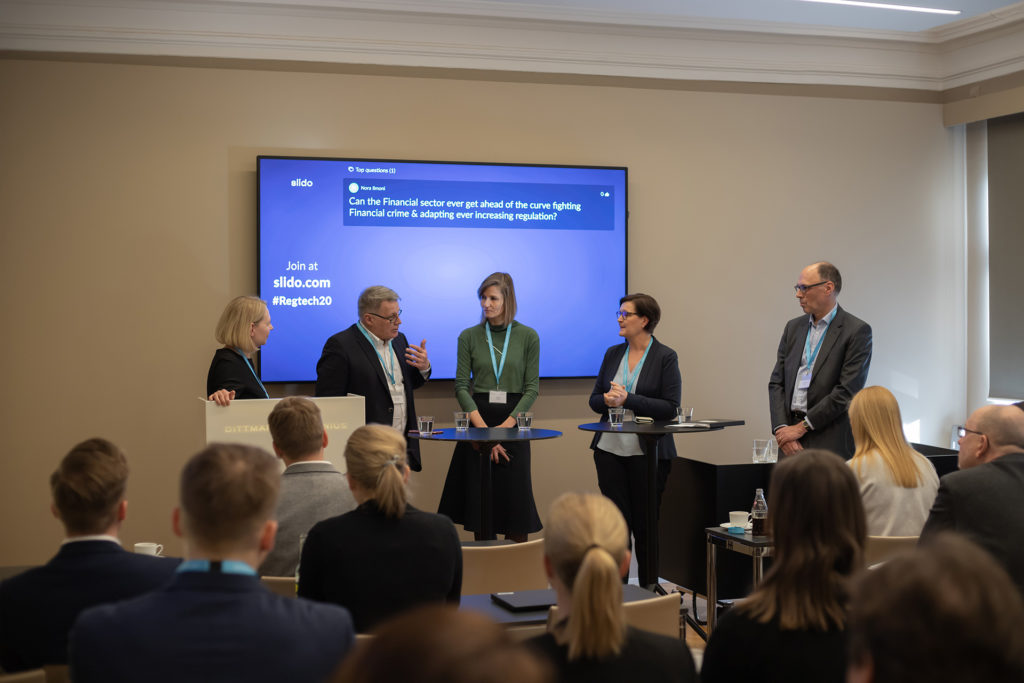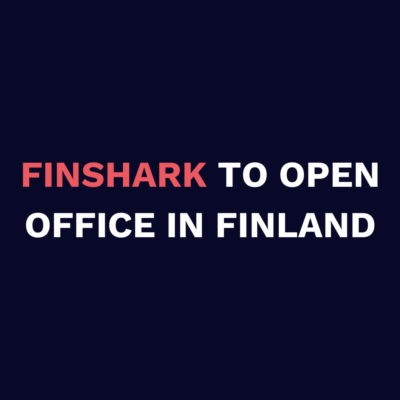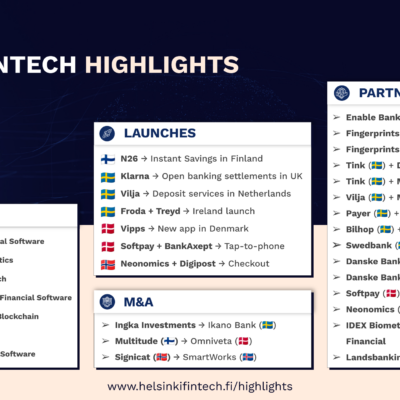RegTech Day gathered a full house on the 27th of February to Dittmar & Indrenius, with over 100 signed up attendees interested in compliance, RegTech and risk management. The event was organized now for the second time together with Dittmar & Indrenius.
The event began with a keynote from the Finnish Financial Supervisory Authority’s Hanna Heiskanen who spoke about Where the Finnish regulatory environment is heading? Finland is highly digital at all levels, which is a benefit that occasionally causes some obstacles, as many innovations are developed here that have never existed before making supervising them more difficult. There are also certain hitches related to legislation covering multiple locations and languages and translations can cause changes in the interpretation of laws and directives. There is a clear focus now on AML on the European level and this is something present also in Finland, with the establishment of an AML specific unit. Europe on a central level has digitalization strongly on the agenda now and for example, crypto assent and cyber resilience frameworks are on the agenda.
The morning continued with a focus on authorities. Kristian Karlsson from Dittmar & Indrenius spoke about the overall Top Enforcement Trends for 2020. He spoke about the underlying ideas and powers behind the strategies of supervisors and what drives their decision making. Analyzing the past is a huge driver, for example, situations that have been identified in the past to forecast financial crises are now seen as signs for regulators to act and legislate. His talk proceeded then to cover the various different strategies of several supervisory authorities such as ESMA and DPA.
Janne Järvenoja from Nordcheck was the first RegTech case demonstrator. Nordcheck builds a compliance platform that takes compliance away from spreadsheets into a world of connected actions. They are working to make regulations understandable, manageable and easy to manage with clear audit trails and actions.
The first break was followed by Claes Norgren from Promontory who spoke about the international perspectives on regulatory challenges. Mr. Norgren spoke about where the AML regulation is heading and highlighted that this is a long journey that can be helped by technology. He then spoke about the history that has led to where we are today. A key point highlighted in the discussion in AML in the Nordics. The countries have historically been very trusting and this has caused unexpected risks that need to now be managed by improving compliance processes.
Nordea and Petri Nikkilä followed by talking about PSD2 and how regulation can be used to drive innovation, or can it. PSD2 was designed to benefit the broader ecosystem, not banks. The intention was to break down barriers, allowing new players to enter the market. Nordea is supporting this change and using it to develop as a company by exploring new services and opportunities. A new service showed during the event was a collaboration with Finnair, which improves customer experience through open banking integration when applying for the Finnair Mastercard.
The last presentation of the morning was by Sameli Mäenpää from OP, speaking about great compliance culture and how to build it. He spoke about how customer data is the most important resource that banks have and therefore understanding it is crucial. The mental shift that is needed is for everyone who works in banks to understand that they are all on a level compliance officers. This understanding is created by building a mentality of compliance in everyday processes and technology, no matter the role. Sameli also highlighted the importance of data quality. If data quality would be good, compliance would be easy.
The afternoon was kicked off by Daniel Roxö from Northmill, who spoke from the perspective of a young bank, which has received its banking license only in 2019. This gives them an agility that is different from traditional banks as they can change their products based on the shifts in the customers’ needs quicker. He reflected on their history, on the process to get the banking license and the way forward.
This was followed by Luminor Bank whose Chief Compliance Officer Marilin Pikaro spoke about the role of the compliance function and how it has to be reskilled to manage the future. The fact is, what you don’t know, you don’t know but the key is to immediately take action when risks occur.
EBAs Meri Rimmanen rose on stage after this, speaking about their focus areas. Currently, EBA is focused on having more comprehensive analytics and a comprehensive view of financial services. She especially highlighted how Nordic banks and entities should participate in calls for comments and input to ensure the representation of views and opinions.
This was followed by Nora Ilmoni from Danske Bank with Philip Relander from Bearing Point. Nora Ilmoni shared with the attendees her experiences on the compliance function from multiple organizations. She spoke about the current state of compliance and what is needed from compliance tools in the future, especially the ability to support all lines of defense in one tool. The view was that financial institutions need further investments in compliance tools and these also need to develop to answer for needs.
The afternoon also saw a great panel discussion featuring over 100 years of banking expertise in the form of Petri Viertiö, Keili Oja, Claes Norgren, Katja Laurila and Katja Mäkelä. The panelists discussed the need for cross-border collaboration, the challenges brought by developing forms of financial crime and how risk management and compliance are similar across the Nordic and Baltic countries.
SAS spoke about risk and finance transformation and how for example new kinds of risks are being included as part bank of stress testing, In reality, it is very likely that the data to manage these risks is there, as well as the technology to conquer them but what is missing is the knowledge on how to do this. Legacy systems are not equipped to manage all the risks of the unexpected but new innovative technologies are. The SAS risk and finance platform is based on new technology and has been built to answer to these changing needs.
The last part of the day was the Fintech power hour, kicked off by Valega Chain Analytics who spoke about managing the risks associated with clients that are also crypto-asset holders. Their session highlighted crypto-asset holders as the blind spot for many banks whilst the amount of such clients, transactions and fraud is growing rapidly.
Factly introduced the audience to their new KYC solution, which is cloud-based, reduces operational risk and provides a seamless customer experience. They also do KYC maintenance, which as an activity is hugely time and resource-consuming done the traditional way .
The final company of the day was iconicchain that develops a solution for fact-based compliance. They spoke about how to get regulators on board to support their proposition, which happened through banks speaking to regulators about how they use the iconicchain platform.
RegTech Day will be held again in early 2021. Meanwhile, have a look at our upcoming events.



